VR travel, space data or energy: how far can the sharing economy go?

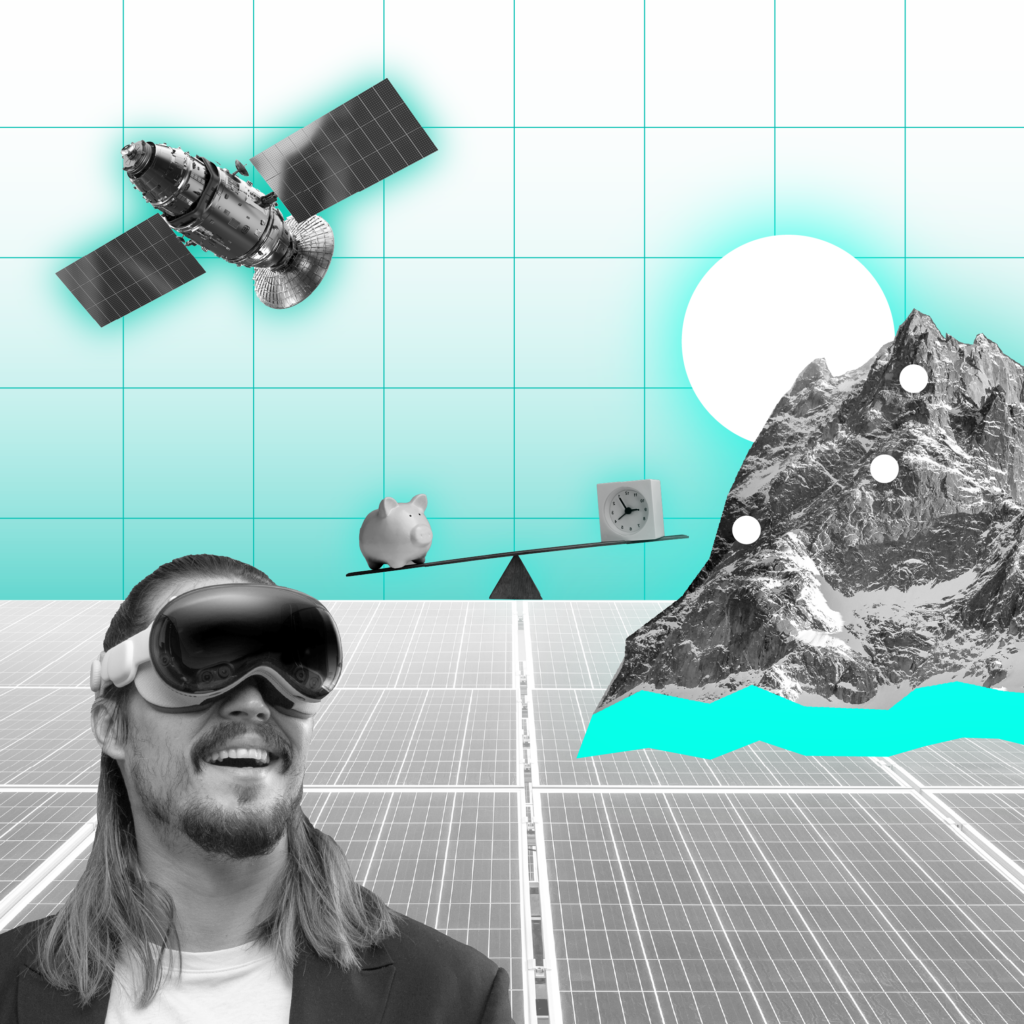
Luxurious cars, electric bikes, scooters, or extravagant vacation homes – thanks to the sharing economy, you can have all these things without “having” any of them. But just how far can this global trend stretch? With technology advancing rapidly, the sharing economy has already ventured into space, expanded VR, and has even tapped into renewable energy. Let’s explore how the sharing economy will shape these industries in the coming years.
In big numbers
A whopping $335 billion is the estimated value of the sharing economy market in 2025, with a compound annual growth rate of 32%.
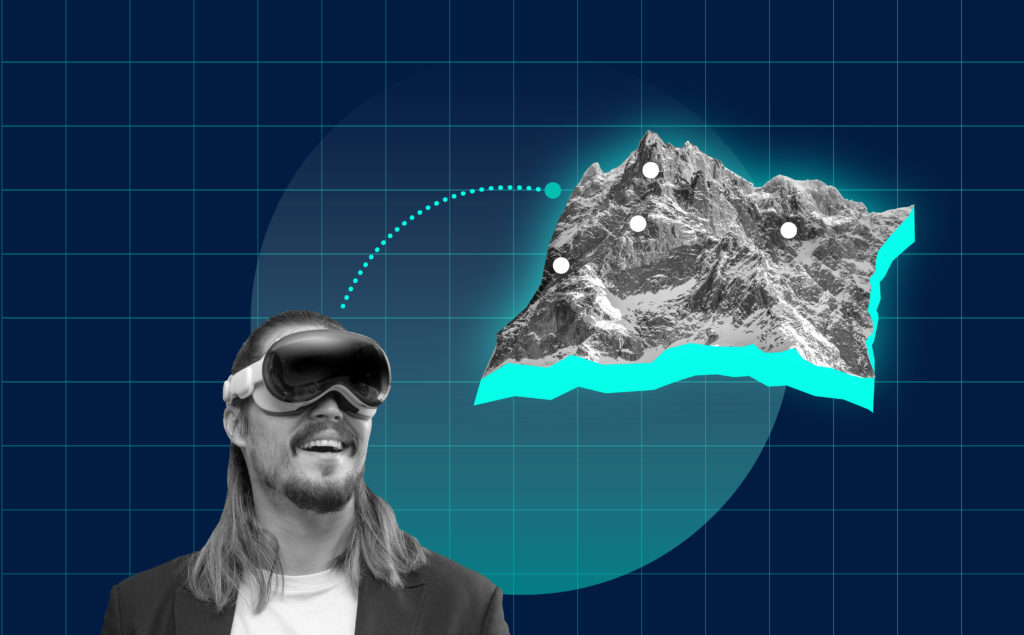
Travelling without going anywhere
VR travel
It’s Sunday morning and you’re walking on a sandy beach, listening to the calming sounds of the sea. After a few minutes, you feel like doing something else. Suddenly, remembering your friend’s funny story about a monkey from their vacation, you decide to explore this scene instead. After all, with virtual reality, you can visit many great places in one morning and still be home for lunch.
Thanks to the sharing economy and 360-degree videos, VR has allowed us to share our travelling experiences and stories with others, and has made diving among coral reefs or experiencing the adrenaline rush of sky-diving possible for almost anybody. Users contribute to this ecosystem by producing and uploading their travel experiences and sharing their adventures with a broader audience.
An array of platforms and applications, such as 360 Stories or BRINK Traveler, cater to VR travel sharing, ranging from user-generated content to professionally produced material available for a fee or subscription. These platforms enable you to travel to beautiful places together with other people, friends or strangers, and foster a global community of explorers who share travel stories and recommendations.
Even big players like Airbnb acknowledge the importance of this technology by offering virtual experiences. So whether you’re concerned about your carbon footprint or your wallet, thanks to virtual experiences you can still share travel experiences with your friends, without leaving your bedroom.
The global virtual tourism market was worth $6.1 billion in 2022, and is predicted to be worth $23.5 billion in 2028.
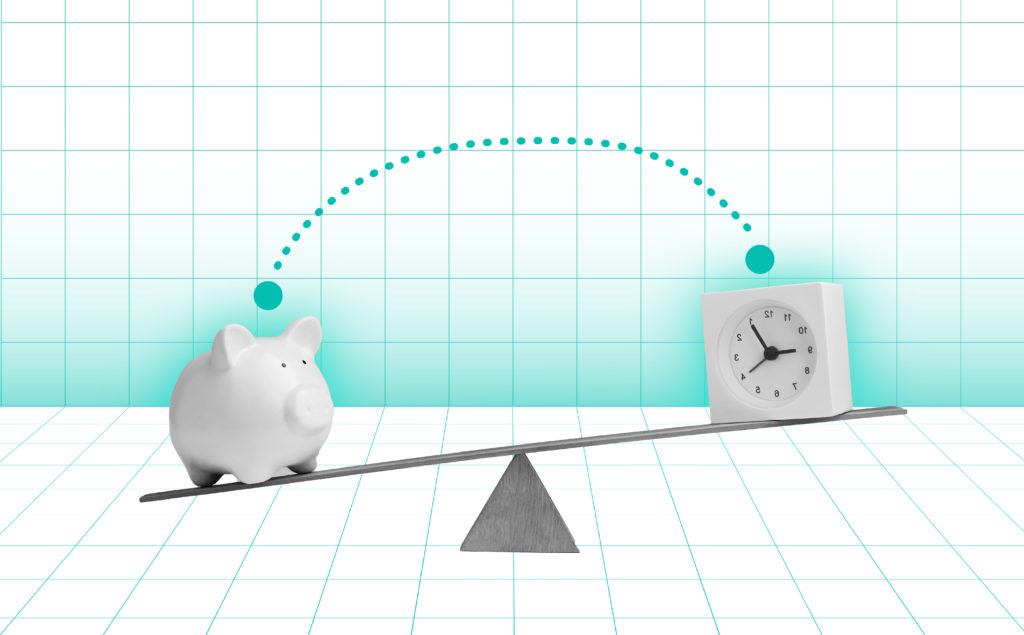
One hour for me, one hour
for you
Time banking
I help you clean up, you teach me French. I repair your car, you walk my dog or teach me tango! Now, we may not all be in equal standing when it comes to money, but we for sure have pretty much the same amount of time in our “time bank account”. Maybe not in a lifetime, but every person has a 24-hour day, and by considering this time as a currency comes the concept of time banking.
“Time banking” was first coined by Dr. Edgar S. Cahn in the 1980s. He developed the concept as a way to exchange services by using time as currency, and it led to the creation of the first time bank, known as “Time Dollars”, in 1987.
Here’s how it works: in a time bank, your time is as good as gold. You help someone for an hour, and you earn a time credit. Need an hour of help with something? You spend that time credit – and not necessarily with the same person, but anyone who can offer the skill or support you need. No cash needed, just good old-fashioned time.
There’s no need to worry about qualifications; everyone’s skills are welcome, whether they are professional skills or not. It’s all about building a stronger community and bringing good old-fashioned barter back into life. Time banking is decentralised, and can work on a community level but also on a much larger scale via online platforms that connect people willing to share their hours, such as TimeBanks USA, hOurworld or Time and Talents.
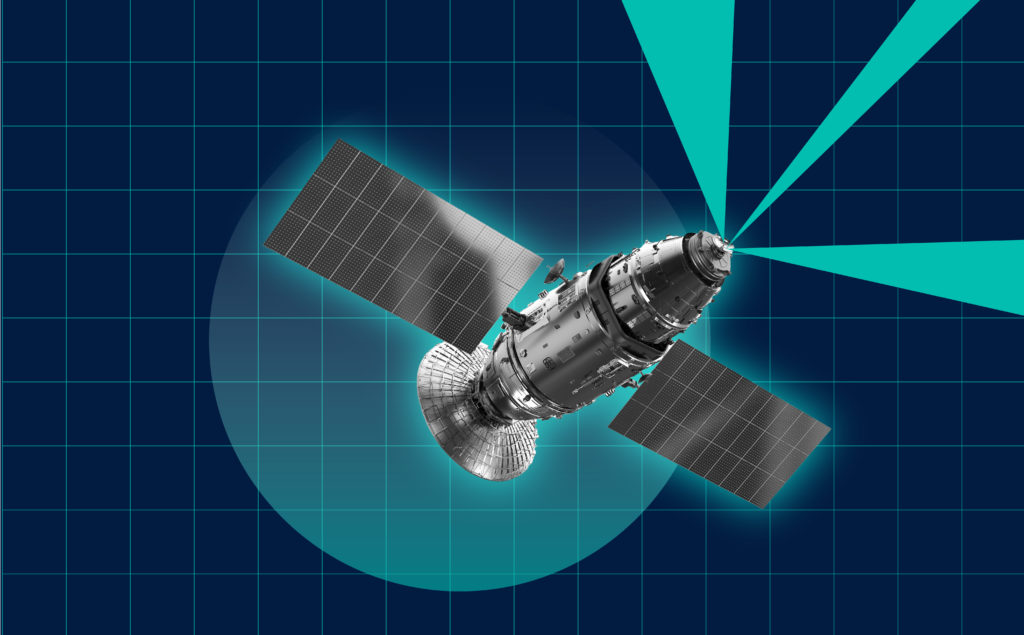
Out of this world
Space data
We may be used to the sharing economy on this planet, but how about some extra-terrestrial potential? The almost 8,000 active satellites currently orbiting the Earth collect huge amounts of data. What if they were available to the public so they could be used for better scientific research, space exploration and Earth monitoring (think environmental monitoring, weather forecast, disaster management, agriculture, etc.)?
There are already open-source initiatives and public access data that allow the public to use data collected by satellites, but there are companies hoping to push it even further. For example, Steve Wozniak’s company Privateer plans to create a data ride-sharing service for space data that will allow customers to “hop on” a satellite and task it with collecting information on regions of Earth that are of interest.
Commercial space sharing
The rise of private space companies has created opportunities for shared access to space assets. Companies can share launch services, satellite deployment and even spacecraft for a variety of purposes, such as communication, Earth observation or space research.

Energy boost for all
Renewable energy
Similar to sharing services and goods, utilities are next on the list for creating a more sustainable world. One of the biggest challenges is decentralising energy production and creating space for prosumers (a combination of producers and consumers) – something that is already happening thanks to the availability of technology for green energy production, especially solar panels.
It is estimated that 264 million EU citizens will become prosumers by 2050, generating 45% of the overall renewable electricity on the market. Whether it is peer-to-peer energy trading among individuals, communities or businesses, creating this new model of energy production, sharing and consumption is key to energy transition. But it is also a major challenge.
Energy sharing is a great concept but difficult to enact. Often because there are strict rules and policies to navigate that weren’t designed with sharing in mind. Making different energy sources and storage systems work together can be tricky. Keeping the data safe regarding how energy is shared is important since it contains personal info, and ensuring that everyone gets a fair share of the energy can be challenging, especially when some people have more access to resources than others.
Technology
Many peer-to-peer energy trading platforms utilise blockchain technology to track energy production and transactions securely. The blockchain can record energy generation, consumption and trading in a transparent and tamper-resistant manner.
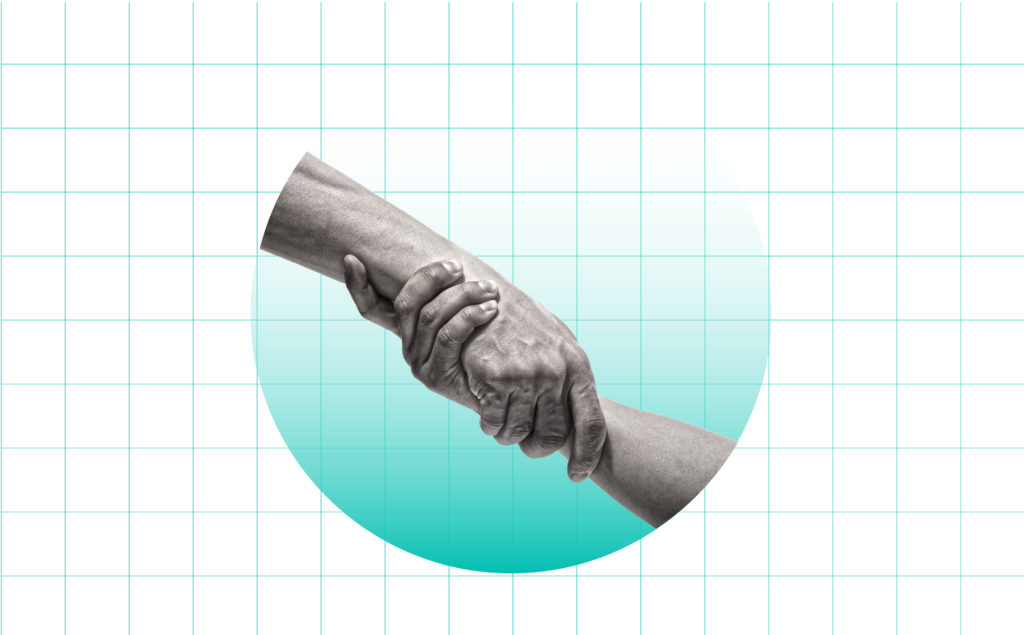
More sharing, more helping
Disaster relief
Just for a moment, imagine a natural disaster has happened. Let’s say there has been a major flood in your region with severe consequences. There are hundreds of people left without shelter, food and clothing, many people are missing, roads are blocked and bridges have collapsed. Thanks to the sharing economy spreading to more altruistic spheres, people, communities and companies can more easily help each other out in times of tragedy.
Well-established companies like Uber, Airbnb, Lyft, TaskRabbit, and most social media platforms, crowdfunding platforms and messaging apps all offer a variety of options for helping people in need during disasters.
For example, by 2020 Airbnb had made free housing available to more than 70,000 people in need, and during Hurricane Ian, which struck southeastern USA and Cuba in 2022, the company allocated $5 million to help victims of the natural disaster. During such cases, the company notifies property owners in affected regions and asks them for help, whether it’s free or reduced-cost accommodation.
Another good example is Uber, which donated 10 million free rides, meals and deliveries during the Covid-19 pandemic to those in need. Crowdfunding is also a popular way of helping others, and the 175,000 crowdfunding campaigns in the US within the first seven months of the pandemic are proof enough that when tough times hit, sharing really is caring.
AUTHOR: Jana Nováková
IMAGES: Shutterstock








